Hampstead Heath and the battle over London's green spaces
Plus: We speak to the restaurant owner berating locals for not eating at his restaurant, go litter picking with Ed Davey, and explain how we accidentally inspired a crime fighting tool.
Hello and welcome to London Centric, where we’re revisiting the gnarly topic of how the capital’s green spaces should be paid for.
This summer we reported extensively on the row over local authorities renting out parks to huge ticketed events. One story that sent enraged park-loving Londoners into our inbox in their droves was our scoop about a secret plan to make money out of Hampstead Heath, revealed in leaked documents from the City of London Corporation.
Today we return to that story, and the news that the ancient organisation, which owns the Heath, could replace local cafe owners in a “competitive re-marketing process” — and is considering changes to some of London’s other treasured green spaces.
Scroll to the end for that.
But first, some “personal news”: London Centric has been nominated in four categories at the British Journalism Awards. Given we’re a tiny year-old operation which is entirely funded by our subscribers and run from a kitchen table, we’re extremely chuffed. Thanks to every reader and all paying subscribers who make what we do possible.
“The fault is not ours”: We talk to the owner of the closed London restaurant who berated locals for not eating there.
When Italian restaurant Don Ciccio announced it was shutting its Highgate venue after six years, it appeared to be another victim of the general squeeze on hospitality in the capital. But rather than bid locals a fond farewell, the north London restaurant opted for a more aggressive approach.
“To the community of Highgate and its neighbours – thank you for never supporting us, not even once,” said a statement from restaurant owner Marco Claudio Valente. “We may be the first Italian restaurant to close… not for bad food, bad reviews, or bad luck – but for the sheer indifference of our neighbours.”
He continued: “It wasn’t enough to be Traveller’s Choice… on Tripadvisor. It wasn’t enough to be told we had one of the best pizzas in London. It wasn’t enough to hold 4.7 stars on Google, with 700 reviews, for every one of those six years. Nor to change our menu each season, roaming through the flavours of Italy.”
But who is Valente? And why was he so angry? London Centric spoke to him to find out.
Speaking on the phone from Italy, Valente called his post “a true and sad statement.” He justified it by explaining that “sometimes you need to say something that makes things right”.
Valente, originally from Rome, worked as a civil engineer and property manager before entering into the restaurant trade. He said he never expected his parting shot to go viral: “I don’t seek notoriety, I don’t seek appreciation. It doesn’t matter to me.”
He estimates that he lost around £200,000 on the venture, which he launched in 2019: “My business is over. I don’t think it was my fault. I don’t think it was my staff’s fault. I don’t think it was my offer’s fault. And that’s it.”
“We had lots of nights where our revenue was 40, 50 pounds,” he said. “Do you think that this is a good way to run a business?”
“In all those six years, we asked ourselves, is it our fault, our offer, our prices?” Valente said. “But the answer, after all the changes and tests and the offers we launched is, no, not at all. The fault is not ours.”
The long nights without orders from customers took its toll, while a spate of negative reviews didn’t help. Things went even further south in August, when Camden council food inspectors paid a visit to the restaurant. The establishment was awarded a zero for its hygiene standards and told it required “urgent improvement”. Of the 4,369 venues checked by the team, there are only 32 others with a zero rating.
Locals who spoke to London Centric suggested the restaurant’s location — on the residential Hampstead Lane – was the problem. But Valente called that “only an excuse” and insisted many other Italian restaurants do good business despite being in “very miserable locations”.
Valente instead blamed the Highgate Society, a local volunteer organisation. He accused them of “never replying to any of our proposals for collaboration,” such as including his restaurant in their newsletter.
When London Centric knocked on the Highgate Society’s doors to ask about the accusation, we accidentally disturbed the group’s weekly bridge game. In a follow-up email, society president Andrew Sulston repeated a statement he gave to local paper the Ham & High: “We are always very sorry when any local business closes. Because Highgate Society has no paid staff and all our activities are run by volunteers, we unfortunately cannot always follow up on all requests.”
Asked for his future plans, Valente said: “I’m not considering opening another restaurant in London.”
Correction: With profuse apologies, in Tuesday’s landlord edition we managed to conflate the redevelopment of Lewisham shopping centre with the separate redevelopment of the Catford Shopping Centre in Lewisham, which was the home of the troubled Catford Mews cinema. We’re sorry for the error, particularly to the south east Londoners who pointed it out.
Bait bikes go mainstream
As we’ve previously reported, bicycle theft in London has been de facto decriminalised because thieves know there is effectively no chance of being caught. While some thieves are just teenagers wanting a joyride and unable to hack a Lime bike, others are organised gangs who can make hundreds of thousands of pounds.
One solution to smashing the gangs is the use of ‘bait bikes’ — essentially decoy bicycles stuffed with GPS trackers that are left on the street to be stolen and lead the police directly to the thieves. We first wrote about this approach a year ago, when we had an awkward confrontation with a thief.
Now the Liberal Democrats have adopted it as a policy, promising to establish a dedicated National Crime Agency unit called ‘Operation Bike Bait’ that will plant bicycles fitted with trackers in theft hotspots so local officers can catch offenders and uncover wider criminal networks.
On a windy Friday afternoon we joined party leader Ed Davey in south west London to launch the policy. Before taking questions, he and his team spent ten minutes on a Womble-inspired litter pick on Wimbledon Common — though they found almost no litter to collect.
“Congratulations to London Centric for taking the initiative,” he said, referencing our accidental test of a bait bike scheme. Davey stressed that bike theft should not be treated as a minor crime: “Whether it’s robbery or burglary or antisocial behaviour or bike theft, we have to take all crimes seriously. Once we start decriminalising some types of crime like bike theft, I’m afraid the criminals then just keep doing more and more of it.”
He said there needed to be more funding for the police. When asked about his party’s role implementing austerity measures during the coalition years, Davey said police funding had got worse since 2015, when the Lib Dems haven’t been in government: “I’m very worried that the police budget in London is seeing a number of officers lost, police stations either closed or the hours of opening reduced.”
After the British Transport Police said they didn’t have the resources to review the hours of CCTV footage associated with bike thefts, we explained how a simple mathematical approach could enormously speed up the process.
Inspired by our article, London Centric reader Tony Onodi has built a free tool which enables any police officer (or security guard, or member of the public, or anyone with Ring doorbell footage) to review a whole day of CCTV footage and identify a thief in a matter of seconds. The technology is there and very effective. Can the police be bothered to use it?
Want to get in touch with London Centric? Click here to send an email or a WhatsApp for our journalists to investigate.
“The Heath belongs to everybody”: Has the City of London met its match in the residents of Hampstead?
By Polly Smythe
“How long have I been here? I started 42 years ago and I never finished.” Although Alberto d’Auria is technically retired, the Parliament Hill Cafe he opened on Hampstead Heath with his family remains very much his home, as well as a north London institution.
For the past four decades, he’s kept everyone from dog walkers to runners, schoolchildren and tourists nourished with pasta, fresh cakes, and plenty of coffee. Hampstead Heath is that rare thing: a Richard Curtis version of London that is as beloved by many of the capital’s residents as its visitors.
But since July, the D’Aurias’ fate, along with that of four other independent cafe owners across north London parks, has hung in the balance. That’s because of an announcement made by the City of London Corporation, which runs Hampstead Heath, inviting “proposals from potential operators” to lease cafe sites across some of the capital’s “most cherished green spaces”. These include the venues currently occupied by the Parliament Hill Cafe, the Parliament Hill Lido Cafe, the Golders Hill Park Cafe, the Highgate Wood Cafe, and the Queen’s Park Cafe.
In February, London Centric revealed a secret new funding model drawn up by the City of London for the green spaces that it controls. Instead of maintaining the sites with ongoing subsidies, the City is looking for its open spaces to increase “income generation” and raise more money directly from the open spaces.
In an era of local authority austerity and debates about commercial festivals in parks, this may seem like a familiar tale of the trade-offs required to make the capital work. But the City of London Corporation is no standard local authority – its representatives are elected not only by its 8,600 residents but also by the banks and companies that line the square mile. It speaks out on behalf of the financial services industry, runs wholesale meat and fish markets, and has some quirky historical roles such as overseeing parks far from its physical boundaries.
Most pertinently, thanks to ancient endowments and canny investments, the City of London holds more than two billion pounds in assets, a sum that jumped by £300m in the last year alone.
“Not a purely profit-driven process”
But this wealthy institution may have met its match in the well-connected residents of Hampstead. A petition by one local woman had collected close to 19,000 signatures at the time of writing. When viewings were held by the estate agent instructed by the City to market the cafes, locals ran counter-protests. Benedict Cumberbatch, James McAvoy, and former Conservative minister Jo Johnson have all weighed in.
London Centric visited Alberto’s cafe, where a plate of chips will set you back £3.50. Opponents fear prices like these will disappear if the current cafes are turfed out in favour of a chain. The minutes from a meeting of the Hampstead Heath Consultative Committee on 16 September – the internal City body overseeing the cafe retendering – stating that remarketing was “not a purely profit-driven process” have done little to calm locals’ nerves. For them, there is more at stake here than the price of a latte.
Stefan Simanowitz, one of the organisers trying to save the cafes, said: “The Heath belongs to everybody. This is just a way of extracting more money out of the leaseholders.”
The City of London Corporation told London Centric that it is running “a competitive re-marketing process [that] will help us ensure a high-quality visitor experience, offering welcoming community spaces that continue to meet the needs of local people.”
The process is being overseen by a committee run by Gregory Jones KC. An administrative barrister by trade, he told his colleagues at a meeting earlier this year that the process was being undertaken to “ensure that the City Corporation as corporate trustees were serving the best interests of Hampstead Heath.”
He added that “cafe businesses must expect to be subject to scrutiny, regardless of their relationship with the community. [...] if the current operators felt they were the best option they should try to represent this in their proposal.”
“Opportunities for housing or other development”
The City of London Corporation’s new policy on boosting commercial income from its open spaces will also affect other spaces it owns and manages across the capital. One of them is Epping Forest, the capital’s largest green space, which stretches across north east London.
Since the 1960s, the City has strategically purchased 1,800 acres of “buffer land” around the edge of the forest to protect it from any future adjoining developments or pollution from traffic, as well as protecting its wildlife.
Epping Forest itself is protected by an act of parliament passed under Queen Victoria in 1878, which mandates the conservator of the green space to keep it “uninclosed and unbuilt on, as an open space for the recreation and enjoyment of the public”. But the buffer lands aren’t protected under the act, which means they’re more vulnerable to being parcelled off.
In May, the City’s policy and resources committee put forward a set of proposals that said the existing policy “does not meet current management or governance needs.” Instead, the document suggests an appraisal of each “land asset” to see if it can provide “income, environmental buffering and improvements, commercial ventures, recreation, operational uses [or] opportunities for housing or other development.”
The City of London said there are no plans to sell or dispose of any charity-owned land: “Any income-generating opportunities would be carefully assessed, ensuring these spaces remain places of natural beauty, community benefit, and environmental conservation.”
Nonetheless, the Epping Forest Heritage Trust said it is “deeply concerned” by the proposals. It also said the decision of the City to rename “buffer land” as “complementary land” demonstrates a “devaluing of the importance of these green spaces”.
Happening on Hampstead Heath
Back on Hampstead Heath, the D’Aurias recall how they saw off a previous threat when, back in 2016, the City of London awarded the contract for the site to the upmarket chain Benugo. Although Alberto offered to up his rent payments, it wasn’t a competitive bid. The local community spearheaded a fierce campaign to keep the cafe in place, eventually prompting Benugo to withdraw its bid and all but apologise for having made one in the first place.
On the back of this fiasco, relations between the City, cafe owners, and residents fell to an all-time low. A cafe working group, with a remit to ensure that any hypothetical future tender process would be conducted more thoughtfully, was formed. But when Doug Crawford, now chair of that working group, emailed the City in July to request a meeting, he was met with a firm no. Why? As tenders were “commercially confidential,” any “additional information” could not be shared.
Crawford told London Centric: “It’s very disappointing that they’re not prepared to meet with us. I asked if they would at least tell us what the tender process is, what the timetable is, what the criteria for selection is, or how they are going to ensure that community value and public opinion is taken account of.”
No date has been given by the City for a decision, although the estate agent’s marketing copy described the cafes as “available immediately, subject to vacant possession.”
Crawford said he feared for the future of London’s green spaces under the City’s new funding model: “It’s increased commercialisation. Will activities that have previously been free of charge on the Heath now be subject to charges? We’ve not had any answers.”
The City insists it is “committed to protecting and preserving” all of its sites forever but wants “greater flexibility” as to how it can “operate, generate and retain income, invest in conservation, and enhance services”.
Highgate and Hampstead MP Tulip Siddiq told London Centric the cafes are “not simply a line on a balance sheet” but instead “make Hampstead Heath the place it is”. She has written to the City of London Corporation to express her concern over the tender process, saying: “The Heath provides unprecedented access to green space for my constituents, many of whom lack access to gardens or green space of their own. Rather than being prioritised for profit, it should be protected as a vital community resource.”
Back in 2016, when the City of London last tried to change the cafe operator, it drew comment from an MP whose constituency used to cover the area: Keir Starmer. The future prime minister said at the time of the City of London: “It’s rare for a public authority to admit they’ve got it wrong in this way, but it’s very welcome.”





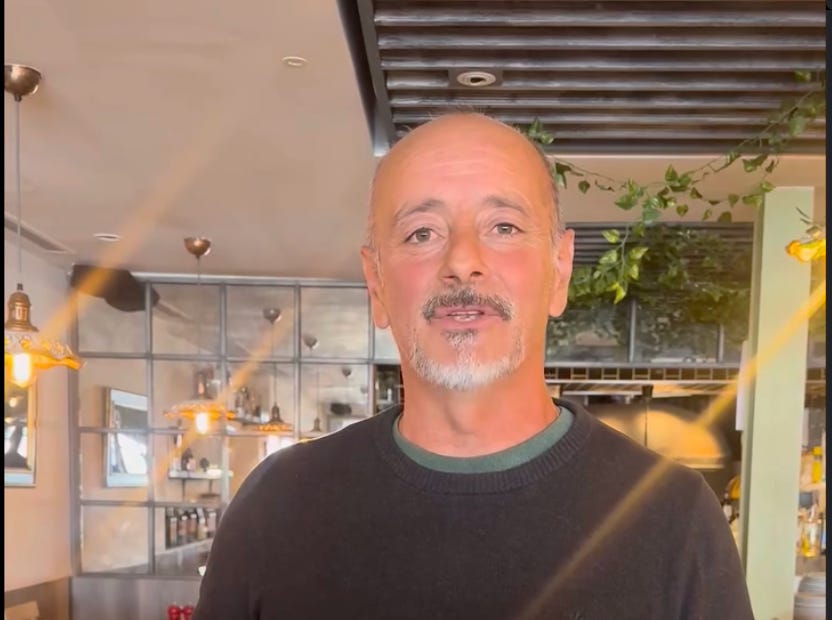
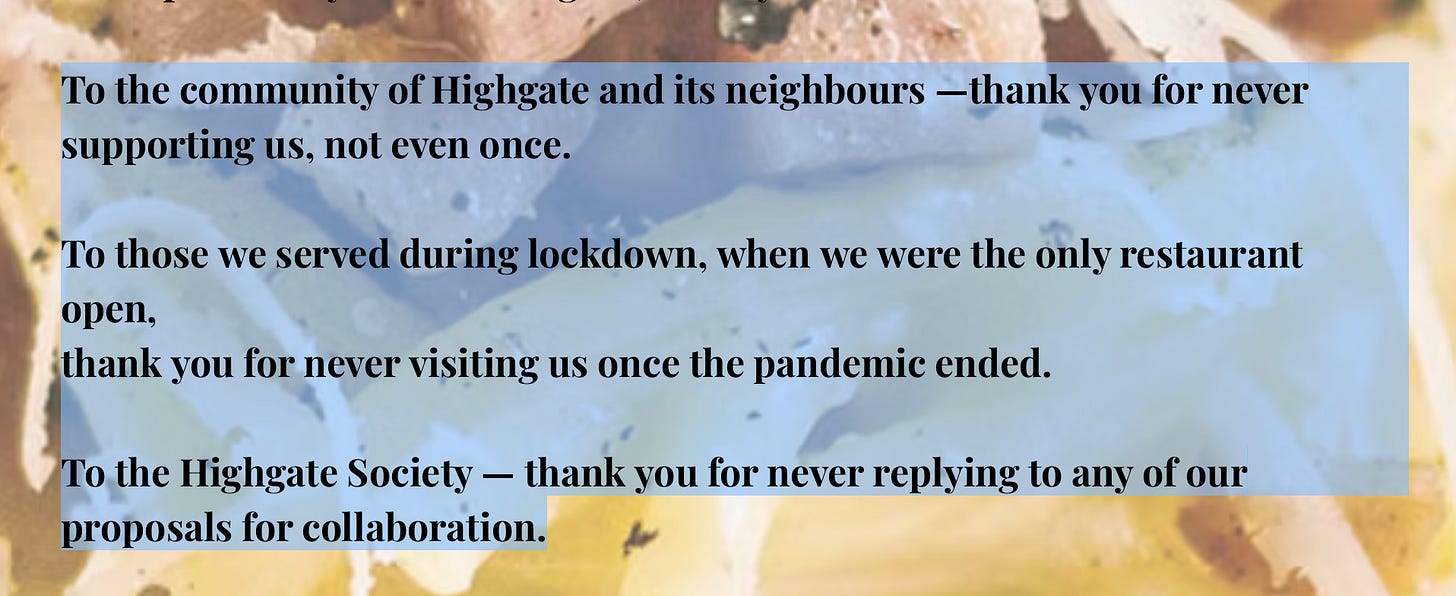
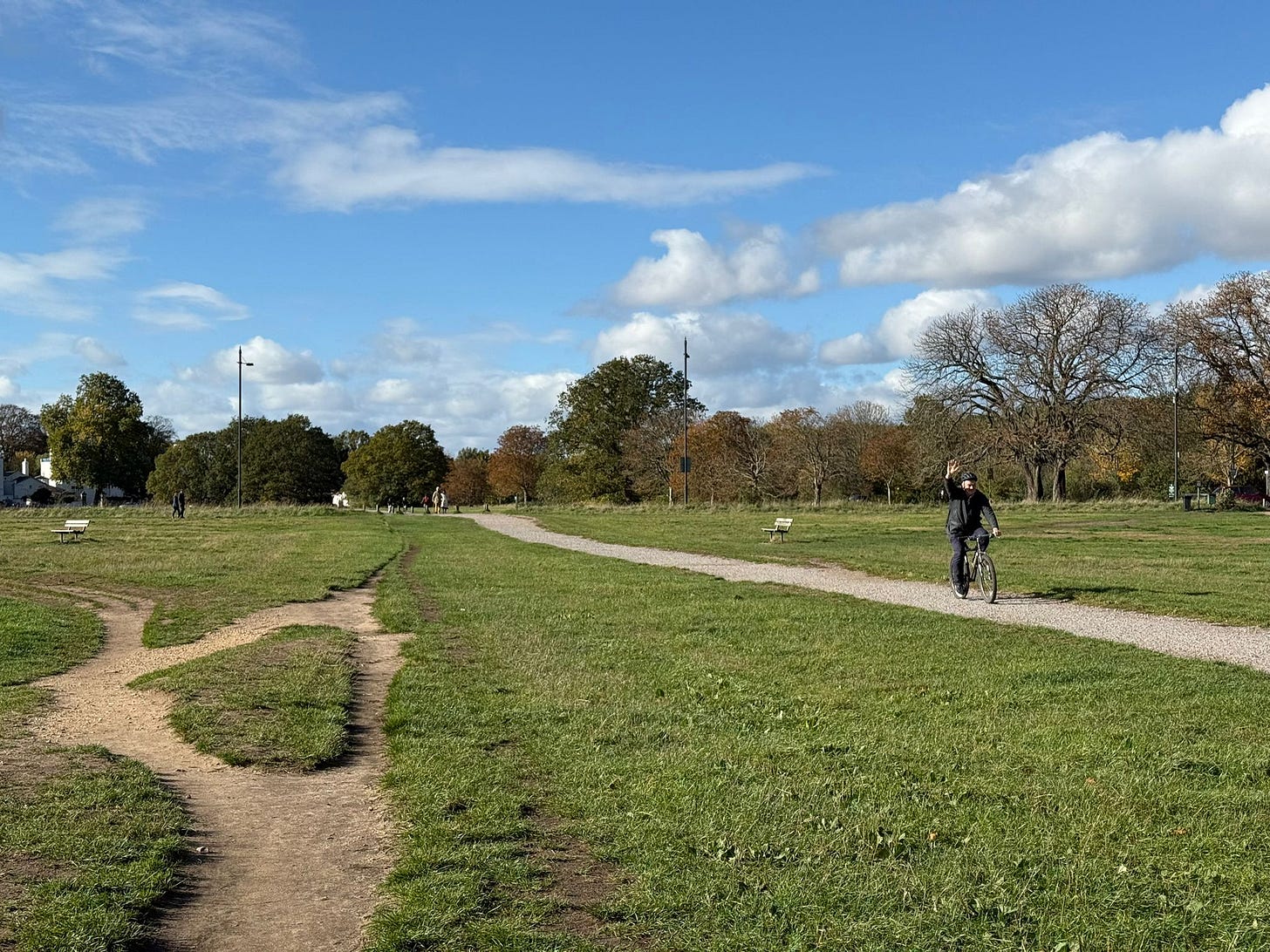
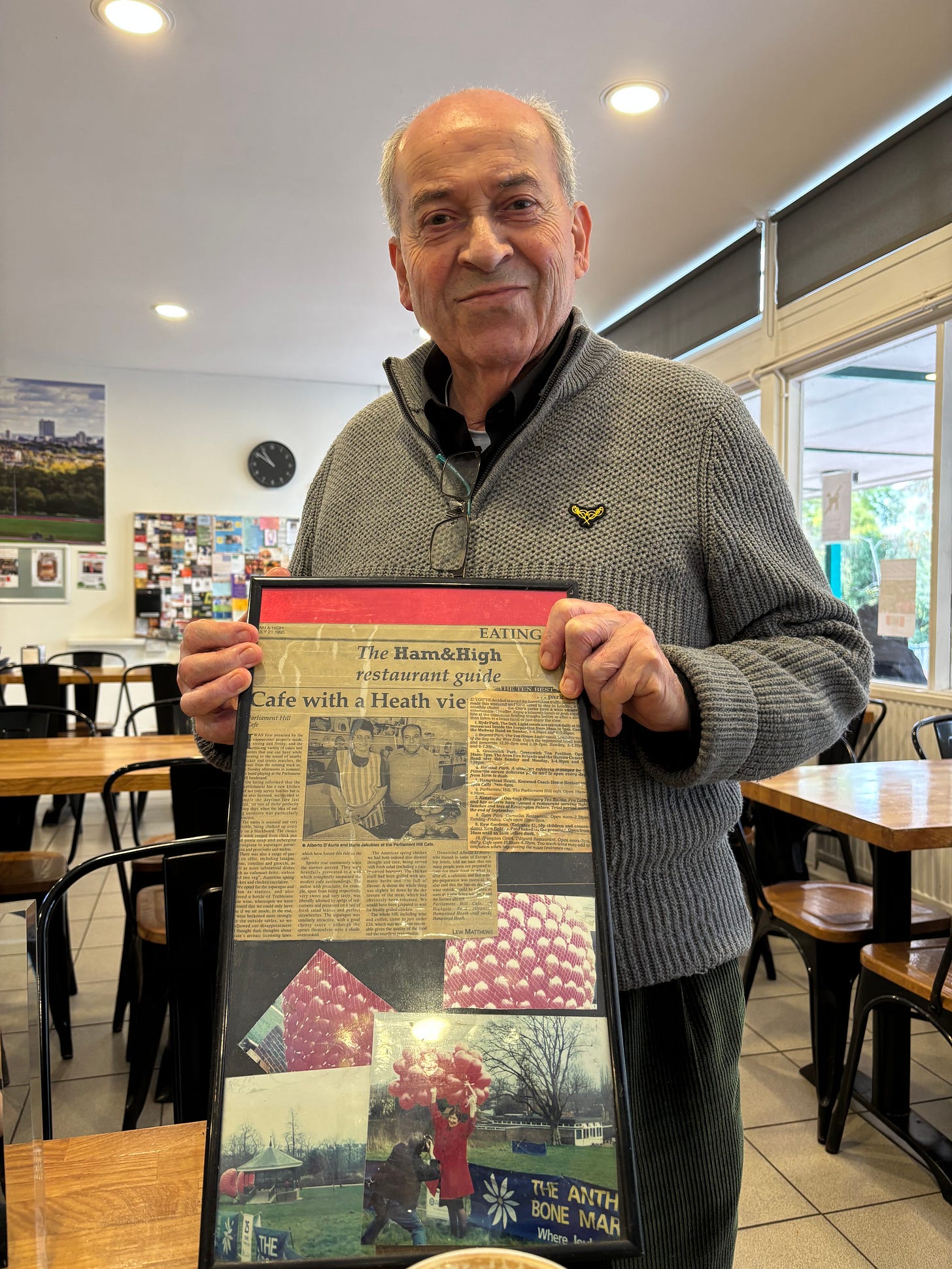
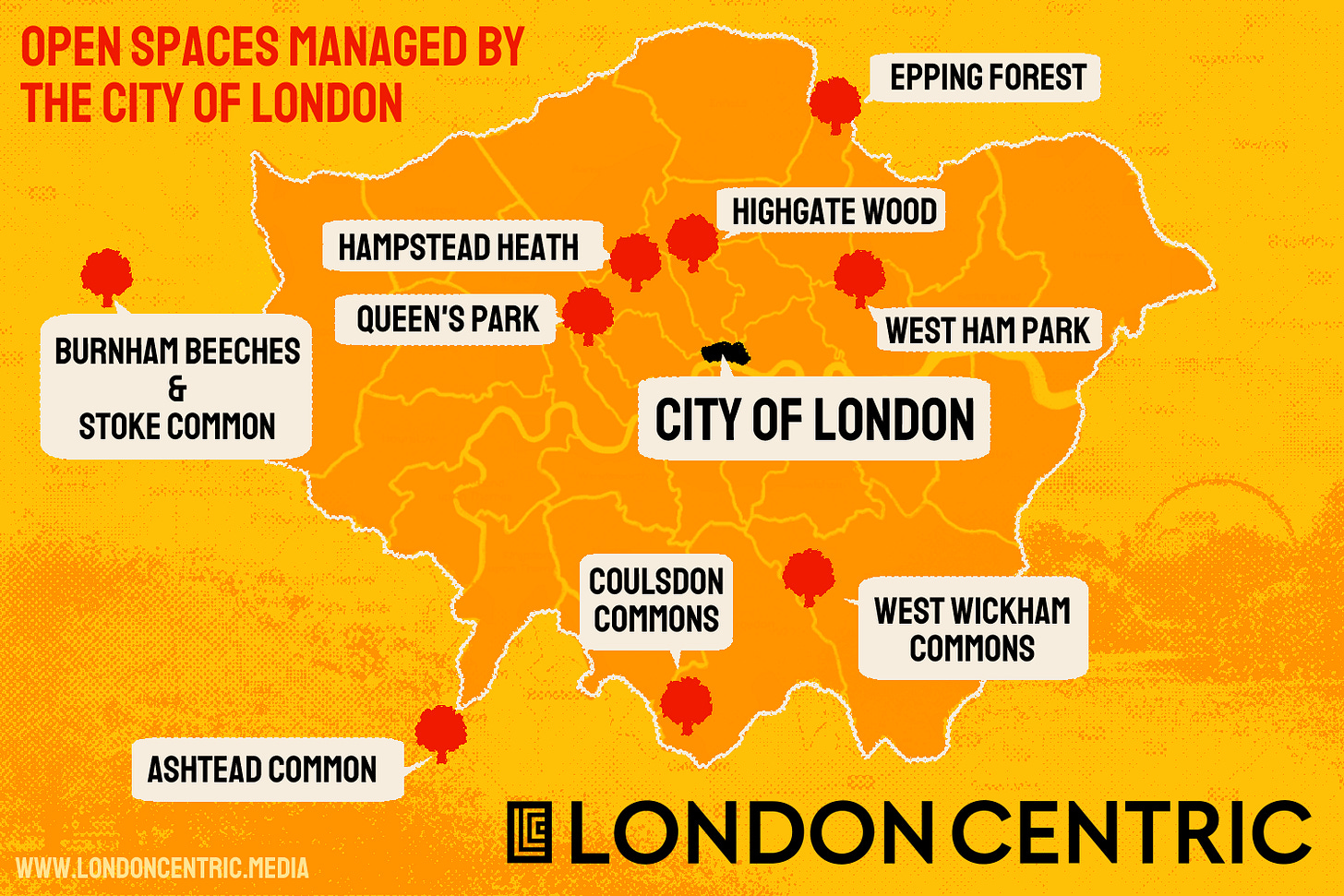

Hackney put the Clissold Pk cafe out to tender when the site was originally renovated & appointed a big commercial operator. Food was expensive & dismal. Staff were apathetic. People complained & many avoided it. It collapsed into administration a couple of years ago & Hackney have now wisely handed the cafe to a local company. The offer has improved & staff seem happy. The great coffee & relatively low priced, healthy meals for kids are a big plus. Big commercial outfits that can pay high rents are simply unsuitable for community provision & should be avoided. It would be tragic to see the Queens Wood cafe in the hands of some soulless multinational.
The desperation to ruin good things about London for relatively little gain is such a frustrating tendency.